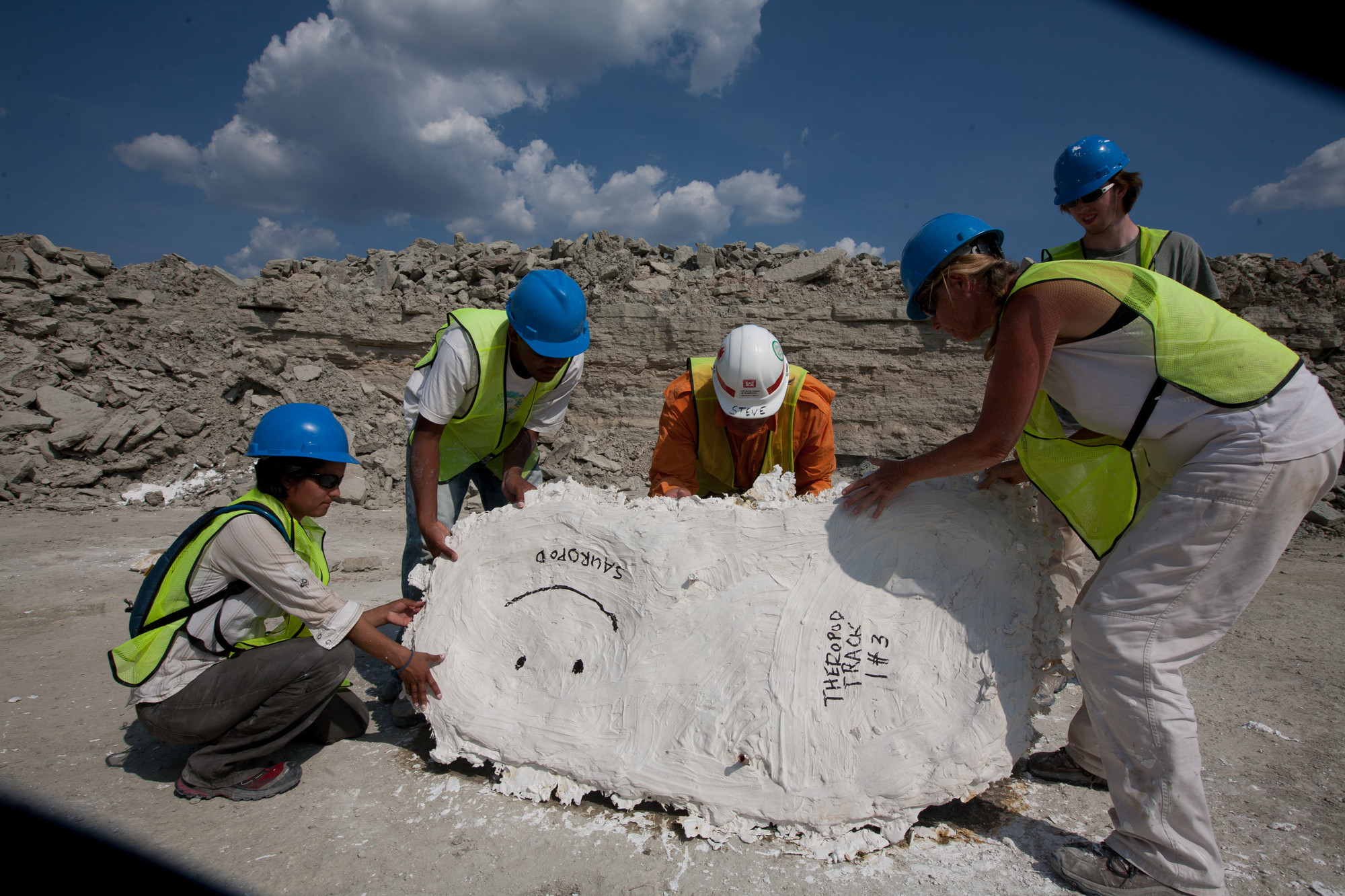
FAYETTEVILLE, Ark. — There are few — if any — graduate programs in the United States such as the one in environmental dynamics at the University of Arkansas.
Environmental dynamics is the study of complex interactions between natural systems and human activity. It requires an interdisciplinary research approach and integration with the power, efficiency and economy of advanced geospatial computing technologies.
The doctoral program at the U of A is unique because of its focus on interdisciplinary environmental-sociocultural study integrating state-of-the-art technologies to chart interactions of human and natural systems over time and space.
“It treads a middle ground between the physical and social sciences,” said Steve Boss, the program’s director. “This is a very much ‘out-of-the-box’ program. It is wildly interdisciplinary. It’s so diverse, the things our students have done. There are so many studies that have been really cool.
“There is such an array of topics of study that it never gets boring,” Boss said.
The program, referred to as “ENDY” by its students and faculty, began in 1998. Its prime focus is human-environmental interactions within recent Earth history. It stresses interdisciplinary analyses of geophysical, biological, geochemical and sociocultural interactions related to environmental change. These include research emphases in:
- Natural and social impacts of global climatic change
- Paleoclimatology and dendrochronology
- Geoinformatics and associated geospatial technologies
- Environmental pollution and ecological degradation
- Landscape evolution and land use change
- Impacts of natural hazards
- Watershed sciences (water quality and quantity)
- Sustainability studies
One notable project that recently brought together environmental dynamic students and other researchers at the university was the discovery of dinosaur tracks found in southwest Arkansas. A team of scientists, which included doctoral students and researchers from the Center for Advanced Spatial Technologies at the U of A, analyzed the prehistoric footprints made by a giant, meat-eating dinosaur called Acrocanthosaurus atokensis.
“Doctoral students are important for research,” said Boss, a professor of geosciences. “They will be here for four or five years. That’s important for faculty who want to pursue larger research grants. The students I’ve had are bright, motivated and creative people. They challenge the limits of my knowledge, and I hope I challenge the limits of their knowledge.”
The program’s students study in departments and programs spread across four colleges at the U of A: the J. William Fulbright College of Arts and Sciences, the Dale Bumpers College of Agriculture, Food and Life Sciences; the College of Engineering and the Sam M. Walton College of Business.
There are at least 13 departments on campus that have participated in the program in its history. Faculty from other departments and colleges sharing an interest in human and natural ecology or paleoenvironmental studies also take part.
Byron Winston, a postdoctoral fellow in the department of crop soils and environmental sciences, graduated from the program in 2011. Originally from the Caribbean island of Dominica, Winston’s dissertation research focused on identifying the source and conditions responsible for episodic foul tasting drinking water in Beaver Lake in Northwest Arkansas.
“The ENDY program is truly interdisciplinary in that it allows you to combine skills, expertise and knowledge along with faculty and experts from a multitude of disciplines on campus and at colleges and universities around the United States and the world,” Winston said. “Steve has been an amazing program director and I think his ability to work with folks across campus and disciplines is a major part of its success.”
Associated research institutes and laboratories include the Center for Advanced Spatial Technologies, the Arkansas Water Resources Center, the Tree-Ring Laboratory, the Bioarchaeology Laboratory, the Archaeology and Archaeogeophysics Laboratories, the Earth Visualization Laboratory, the Arkansas Archaeological Survey, the Stable Isotope Laboratory, The Sustainability Consortium, the Applied Sustainability Center and the Center for Agricultural and Rural Sustainability.
Topics
Contacts
Steve Boss, director
environmental dynamics
479-575-7134,